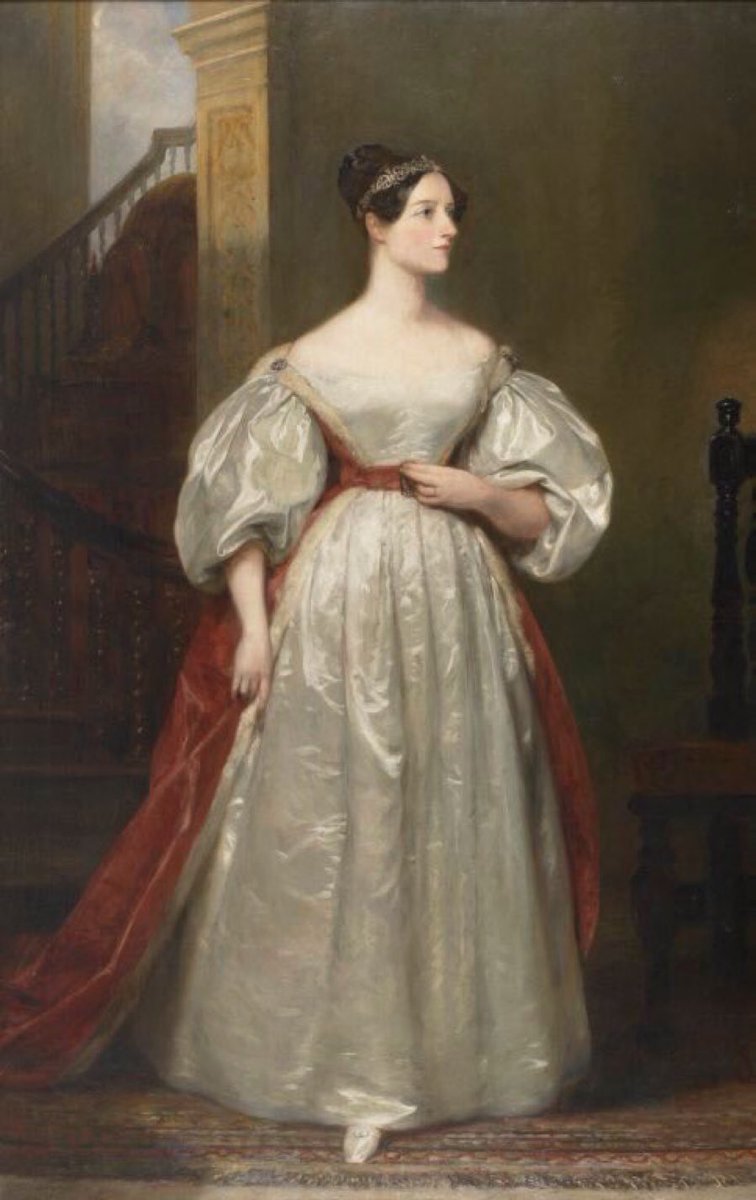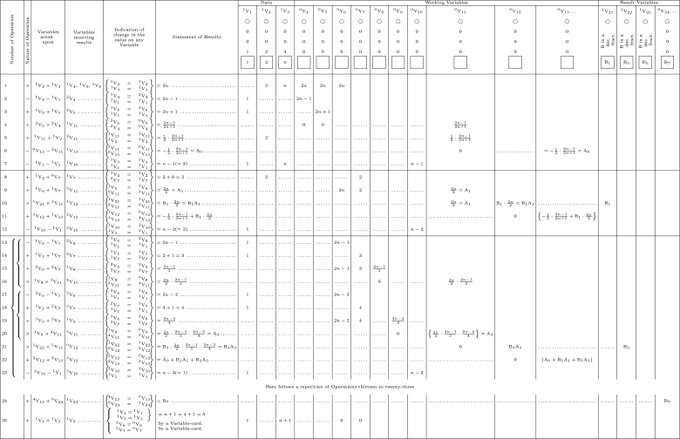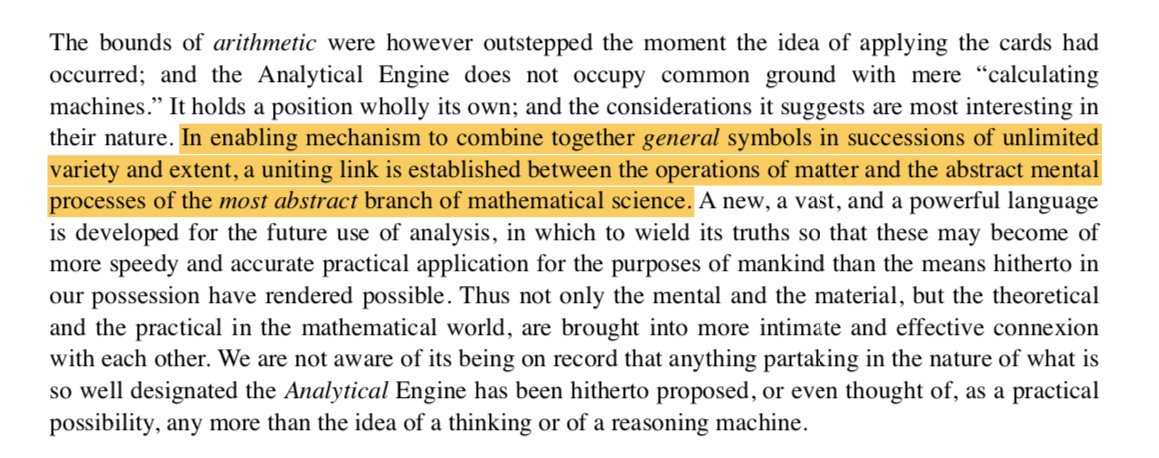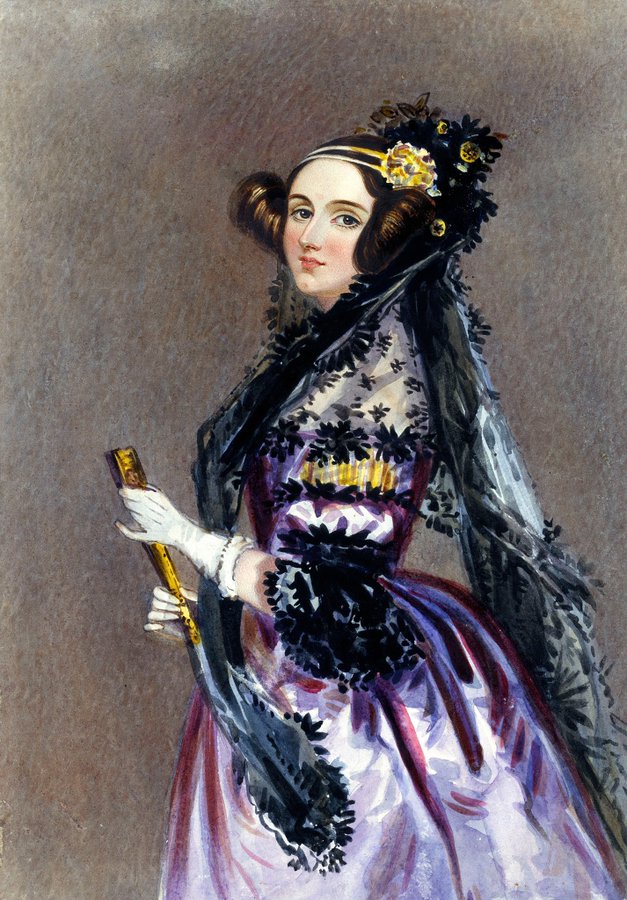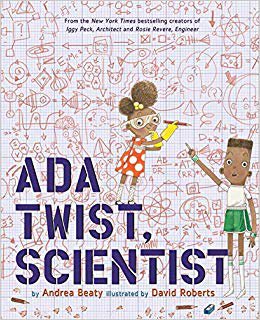Ada Lovelace, née Augusta Ada Byron, was born #OTD in 1815. A mathematician and the first published computer programmer, she offered a prescient vision of what computing would become.
Portrait: Margaret Sarah Carpenter (1836)
Portrait: Margaret Sarah Carpenter (1836)
Her mother, worried that Lord Byron's poetic temperament might be familial, insisted that Ada be tutored in math, science, and logic. Those things, she reasoned, might counter Ada’s volatile inheritance.
Ada was tutored by the renowned mathematician and astronomer Mary Sommerville, “the Queen of Nineteenth Century Science,” who was nominated for membership in the Royal Astronomical Society at the same time as Caroline Herschel. https://twitter.com/mcnees/status/1210215612338835461
Somerville introduced Ada to Charles Babbage, the Lucasian Professor at Cambridge, in 1833. Babbage demonstrated part of his new Difference Engine for the young Ada, and she was fascinated. The long correspondence between them would eventually become full-fledged collaboration.
The next year, in 1834, Babbage drew up plans for his Analytical Engine. But the Difference Engine wasn't complete, and Parliament was not inclined to support a second project with the first yet unfinished. Still, Babbage’s plans generated interest among mathematicians.
In 1842 the Italian mathematician Louis Menebrea published a treatise on the Analytical Engine, but he wrote it in French. Babbage asked Lovelace to prepare a translation and expand on Menebrea's article. After all, she understood the Engine as well as anyone, including Babbage.
The article Ada produced was nearly four times as long as Menebrea's original, with a voluminous "Notes" section full of wildly original ideas that foresaw much of modern computing. When it was published in September 1843 she was only 27 years old.
https://www.fourmilab.ch/babbage/sketch.html
https://www.fourmilab.ch/babbage/sketch.html
While Babbage and collaborators had sketched out routines for the Engine, Ada Lovelace produced them here in much greater detail. And hers were the first to be published. This is why she is often referred to as the "first computer programmer."
But Ada went further, imagining how the Analytical Engine might act on abstract mathematical symbols. Here is the germinal idea that modern symbolic computation systems began to realize well over 100 years later. @WolframResearch
Maybe there was some poetry to be found there among the math, science, and logic.
Anyway, when I read the passage about composing music this is what plays in my head.
Some historians dispute the role played by Lovelace in the development of programs for the Engine. Though afaik, they mostly agree that her idea of what computing might become was both prescient and visionary.
But imho, even the distillation of existing ideas into the form given in "Sketch of the Analytical Engine" was a revolutionary contribution that envisioned something far beyond what her colleagues imagined.
Whether or not you want to call her "the first programmer" depends on what you mean by programmer, I guess. I think it's a fitting title that does a good job of capturing her contributions.
Lovelace's powerful imagination envisioned and articulated connections between subjects that her colleagues could not see. Ada described her approach as "Poetical Science." I love this term.
Ada Lovelace died of cancer about nine years after the publication of "Sketch of the Analytical Engine." She was not quite 37 years old.
Happy 205th birthday to Ada Lovelace, Poetical Scientist and the first computer programmer.
Portrait: Attributed to Alfred Edward Chalon
Portrait: Attributed to Alfred Edward Chalon
There are so any representations of Ada Lovelace in popular culture, you'd need a dedicated Analytical Engine to keep track of them all. Go buy a copy of @andreabeaty’s “Ada Twist, Scientist” for a little kid you love, or one of @TheSpaceGal’s “Ada Lace” books.

 Read on Twitter
Read on Twitter